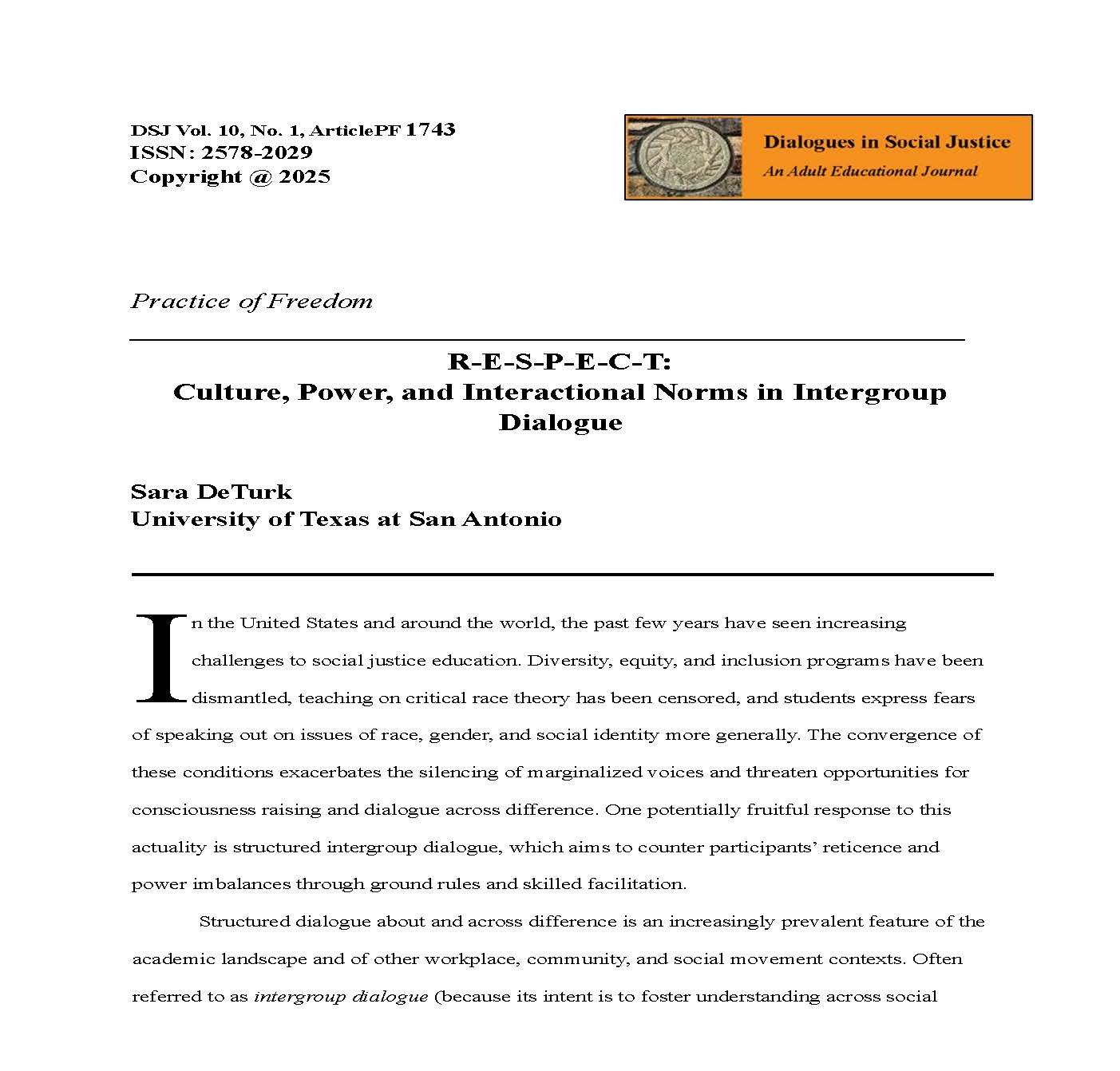Respect: Culture, Power, and Interactional Norms in Intergroup Dialogue
Abstract
Structured intergroup dialogue (IGD) has proliferated in a variety of settings over the past four decades. Aimed at promoting intergroup understanding and social justice through perspective taking across groups, IGD relies on the assumption that the structure provided by trained facilitators and codified sets of ground rules can mitigate some of the inequities in otherwise distorted communication. This analysis explores and problematizes this assumption based on (1) the culturally loaded nature of “respect” and other relevant concepts, (2) the unrealistic and inappropriate goal of the “safe space,” and (3) the differential challenges faced by members of dominant and marginalized groups, respectively. The paper concludes with recommendations for the establishment of dialogue norms.

Downloads
Published
Issue
Section
License
Authors who publish with this journal agree to the following terms:
a. Authors retain copyright and grant the journal right of first publication with the work simultaneously licensed under a Creative Commons Attribution License that allows others to share the work with an acknowledgement of the work's authorship and initial publication in this journal.
b. Authors are able to enter into separate, additional contractual arrangements for the non-exclusive distribution of the journal's published version of the work (e.g., post it to an institutional repository or publish it in a book), with an acknowledgement of its initial publication in this journal.
c. Authors are permitted and encouraged to post their work online (e.g., in institutional repositories or on their website) prior to and during the submission process, as it can lead to productive exchanges, as well as earlier and greater citation of published work (See The Effect of Open Access).

